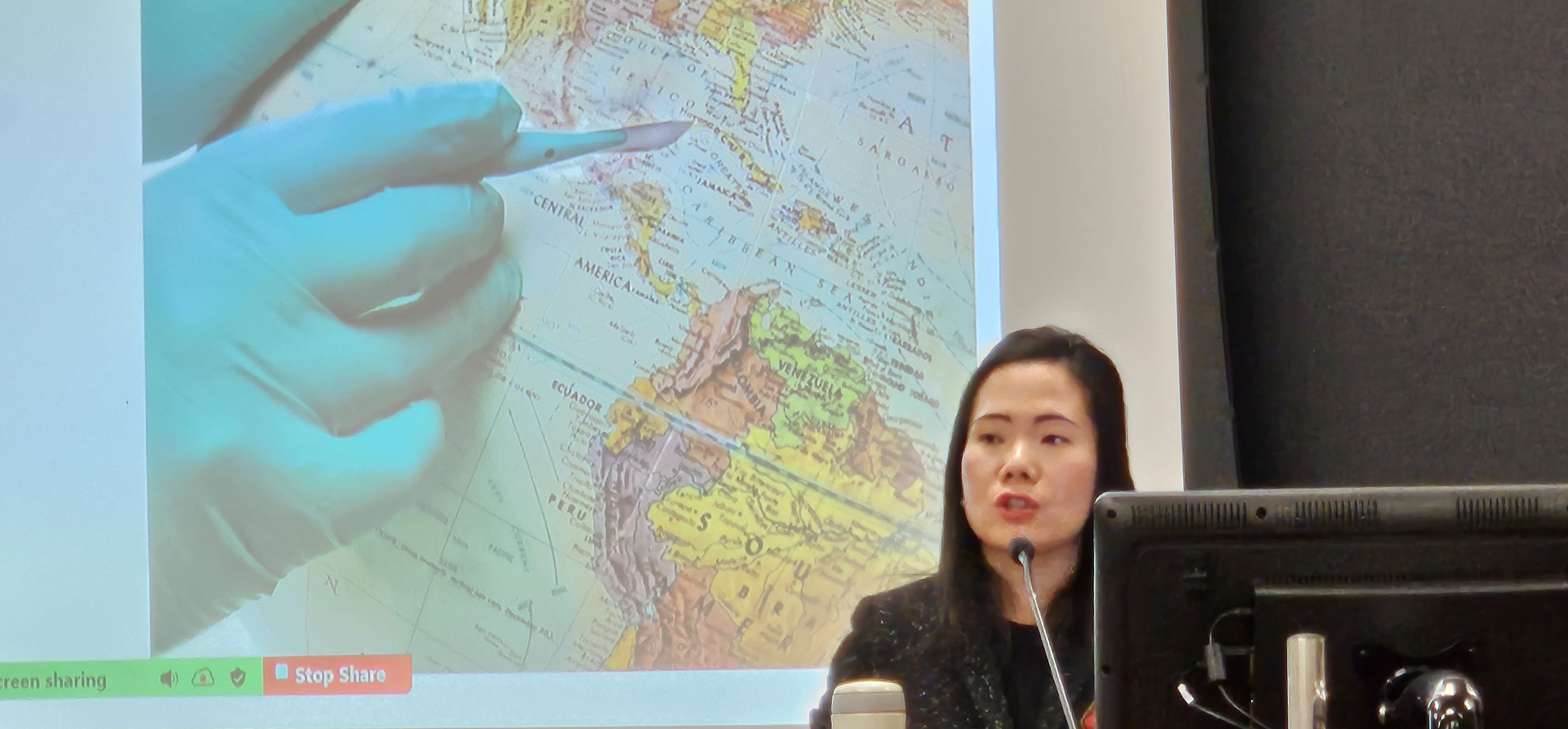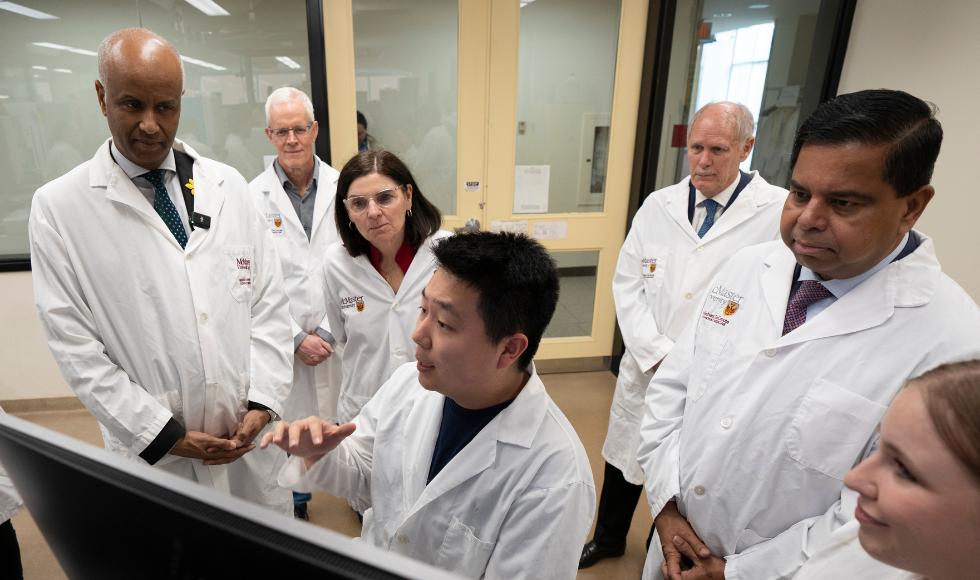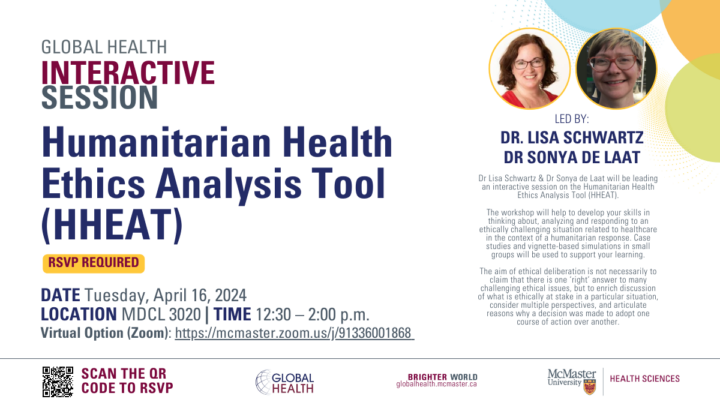Obstetric Fistula: A Manifestation of Surgical Care Inequity

Global Health Student Blog written by: Saron Teferra and Teshan Dias Desinghe, MSc Global Health candidates
“If there is no hospital, there is no way to be operated on” lamented an obstetric fistula survivor while describing her traumatic experience giving birth in rural Uganda.
Her story was shared as part of the “Breaking Silent Suffering” video series, developed by the United Nations Populations Fund, which set the stage for a recent Global Health Seminar exploring the need for accessible and effective global surgical care systems. The seminar was conducted by Esther Chin, an Obstetrician/Gynecologist (OB-GYN), Assistant Clinical Professor, and Global Health Lead in the Department of OB-GYN at McMaster University. By highlighting the challenges of obstetric fistula, Chin demonstrated the connection between global surgery and global health, and the importance of inclusive and collaborative approaches to surgical care.
To begin the seminar, Chin introduced the concept of global surgery as “the study and practice of improving access to timely, quality, and affordable surgical care for all”. Viewing global surgery as a universal concern, Chin remarked that “given the burden of surgically treatable diseases in the world you really can’t talk about universal health coverage or care without talking about surgical care systems and therefore global surgery.”
Surgical care systems are comprised of the patient, place, infrastructure, personnel, and process of getting there. Chin illustrated the necessity of this holistic view by describing how her patient in Rwanda hiked 10-12 hours in labour at full dilation to access a medical facility. This harsh reality indicates that accessible and successful care is “highly dependent on having various components of the surgical care system poised [and] ready to respond at a given moment,” Chin asserted.
To further illustrate the significance of global surgery, Chin discussed her work and specialization in obstetric fistula. Obstetric fistulas are holes in the connection between the urinary system (urethra, bladder, ureter) or rectum and the reproductive system (vagina, cervix, uterus) that are caused by prolonged obstructed labour. Chin explained that fistulas serve as “an indicator of a failed surgical system when it comes to ob-gyn” as they are preventable injuries largely perpetuated by systemic, institutional, and individual inequities. For instance, risk factors of obstetric fistulas include: (1) an under-developed pelvis due to young age or malnutrition, (2) high student attrition, (3) child and adolescent marriages, (4) barriers to care.
Chin explained that the barriers to care can be encapsulated by delays that occur at three different access points. Firstly, at the patient-level, social and cultural factors may delay the decision to seek care. A second delay can occur if medical facilities cannot be easily accessed due to difficult topography and poor infrastructure. Lastly, an additional delay may occur at the healthcare facility due to staff shortages, lack of equipment, or insufficient medical specialty training. Chin recounted a harrowing instance where she was forced to conduct a c-section under local anesthetic because no one trained to provide spinal anesthesia was available.
Although obstetric fistulas are not inherently life-threatening, they often lead to various negative social, psychological, and economic challenges. Living with a fistula means experiencing consistent urinary and/or fecal incontinence which frequently results in women being abandoned and living in isolation. Consequently, many are often left unaware or unable to access treatment, leading them vulnerable to other complex injuries and disabilities.
Before concluding, Chin emphasized that “fistulas are virtually non-existent in high-income countries” and can similarly be eradicated in LMICs through:
- Preventative antenatal and intrapartum care [including c-sections]
- Treatment via fistula repair training and maintenance
- Community-based rehab and reintegration efforts,
- Advocacy and outreach that address beliefs, stigmas, attributable causes, and policy changes.
- Research which underpins all the above
Ultimately, Chin emphasized that by strengthening surgical systems, we can collectively prevent obstetric fistulas and other surgically preventable conditions which are responsible for millions of deaths annually. Hence, global surgery remains an integral part of global health and requires our increased attention and efforts.
Global Health News, Student BlogRelated News
News Listing

Daily News ➚
A win for Canadian research: Ottawa boosts funding for graduate students, research grants
Global Health News
April 22, 2024


